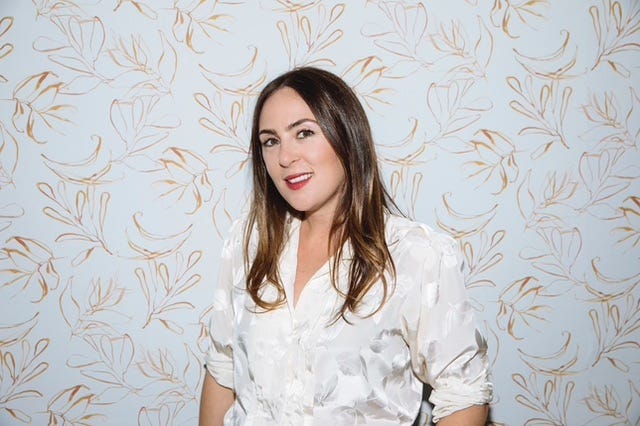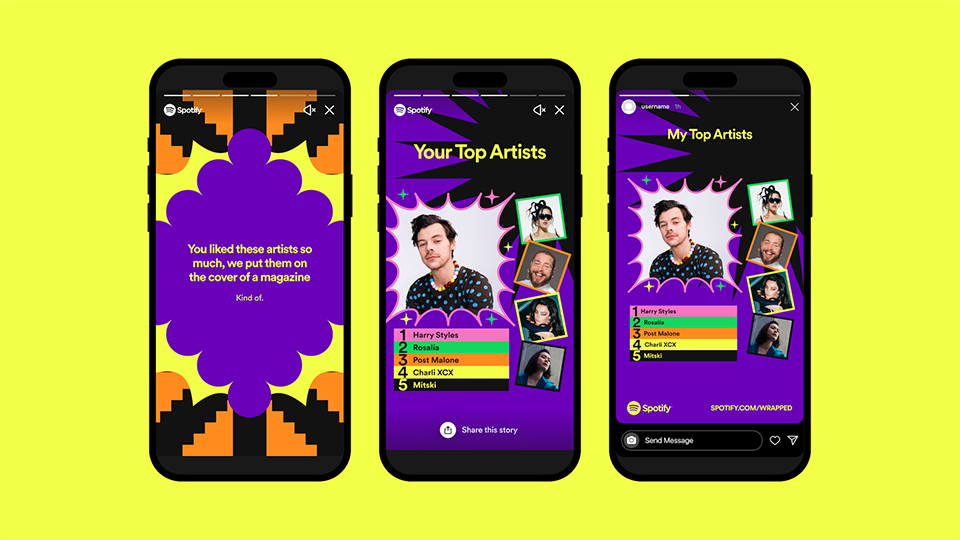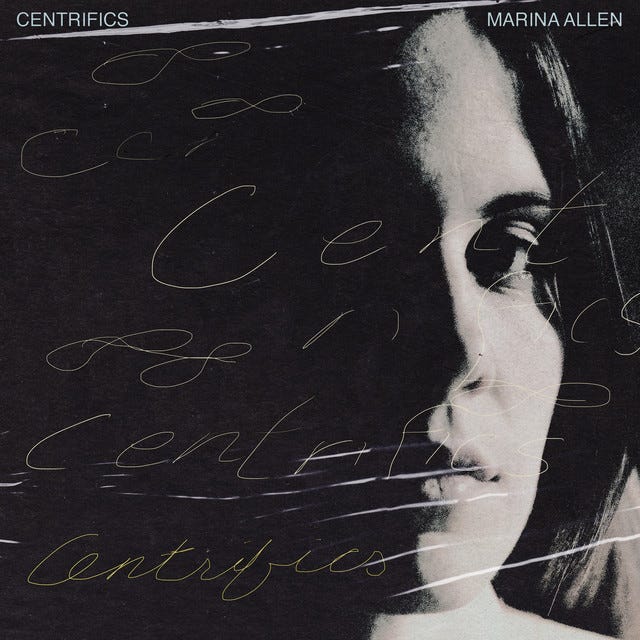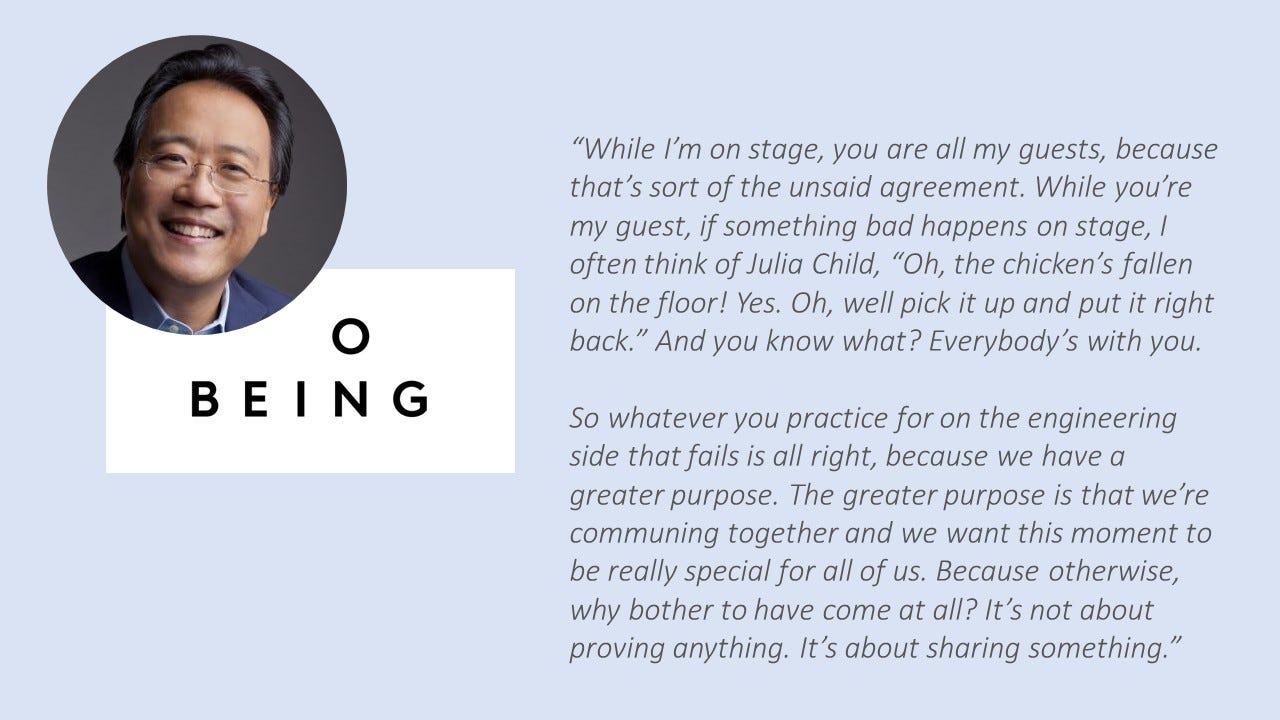Without a song or a dance, what are we?
On the evolution of music tech, positive friction, avatar concerts, and more
Field Notes
Welcome back to the Experience Explorer, your monthly report from the wide world of experience design. Today we’re delving into the realm of music - and how music discovery and concert experiences are evolving.
Our correspondent this month is Emily Rosenblum, the marketing and brand experience expert for whom music has been a personal and professional red thread, taking her from projects with Universal Music Group and Variety to Spotify and Disney. Below she teaches us the rules of the ‘game with no name’, discusses how playlist algorithms are like online dating, and underscores that ‘show, don’t tell’ is a golden rule of experience design.

Hi Emily! How did you first get interested in experience design, and how has that interest been expressed through your work in the music industry?
Emily Rosenblum [ER]: Hi Christina, thanks for having me! After college, when I was looking for a career path, I remembered the adage “do what you love and you’ll never work a day.” What I’ve always loved most was music, specifically live music. I thought if I could be a part of creating that magical experience, of uniting a bunch of people in a venue with a shared passion, it would be a dream. So, I pursued work in the industry after college and worked full-time in entertainment until very recently.
[CH]: I’ve been thinking a lot lately about how the experience of music has evolved. Over the last century, we’ve progressed from purely live performances to recordings on radio, vinyls and CDs and onto the iPod and Spotify. And now, we’ve atomized music to the extreme that just second-long snippets of singles are top hits from TikTok.
It feels like there’s been a transition from sensorially rich, shared experiences to more individually-optimized, private listening. What do you make of this?
[ER]: I think the trend you're referring to is the general transition from a shared society to a more siloed one facilitated by technology. If you think about it, most of the apps on our phones are meant to decrease IRL interactions, to remove friction. If you order from Deliveroo in London, you can now ask the driver to leave the food on your doorstep; no need to say thank you or hand over a friendly tip.
As for technology’s effect on how we experience music, I think it's twofold.
First, on a positive note, we’re more in control. On a long drive, I often connect to a song in a way I may never have before and listen to it four times in a row to dive further into the part that captured my attention (a dramatic key change or a striking bass line). This was cumbersome in the more analog past, especially with vinyl. Sure, you could skip a song, but you still might have to go to the store, purchase the album, come home and unwrap it (which was a chore with CDs), and it wasn’t cheap. With streaming services, there's unlimited, instant access to music discovery and exploration, which is a whole other discussion regarding pricing experiences.
But this brings us to the second effect: there is a dilution of artistic control in some cases. The concept of an album as a complete piece of work that should be experienced in sequence, at least on initial listens, is considered archaic.

[CH]: Right. For example, this past week I didn't even recognize some of my Spotify top songs because I discovered them has been through algorithmic playlists. On the one hand, I’m glad I discovered those songs. But on the other, they were divorced from the cover art, music videos, the acoustics of different concert spaces. All that texture - part of what makes music memorable - is stripped out.
Do you think there are ways to add meaningful friction back into the discovery experience?
[ER]: Absolutely. I've also recognized this trend in technology of decreasing friction. And I've noted that a piece of recorded music is not considered a complete artwork in many cases.
I take a reasonably neutral position on this because change isn’t inherently negative, and it's inevitable. However, I feel incredibly passionate about how algorithms have contributed to what I call the lost art of discovery. You could argue all day long with me and say, "Emily, that is the whole point! To know your tastes intimately, predict what you like, and suggest things you may have never discovered otherwise." And I don't disagree. When I put any streaming services into a random mode, I occasionally hear a song that causes me to explore that artist's catalog. But, to me, that is just one avenue for music discovery, and it leaves out all of my favorite modes, like going to a record store and putting on headphones to listen to the employees' picks of the month.
Being fed music through algorithms is kind of like online dating. Apps didn't replace meeting people in person….now, along with volunteering, dinner parties, bars, church groups, and whatever ways people met each other in the past, it's just become another possible way for people to connect. Streaming services are simply another outlet to explore music. But certainly not the only way, and for me, still not the main path.

As for what makes for a meaningful, memorable musical experience, I genuinely believe music is best when shared. After I listen to that song four times in a row in the car, I'm likely going to text one of my friends later, who I know will appreciate the elements of the song I connected to, and then we're going to have some shared moment around that piece of art. Or, I'm going to play it for them the next time I see them in person.
Some of my closest friends and I have a tradition of listening to music that I thought was relatively common, but I've never heard discussed broadly. I've always called it "the game with no name.” The idea is this: one person in a pair or a group plays a song, and then the next person puts on a track that is somehow inspired by the previous one, and on and on it goes. This leads to a discussion about why the two tracks were linked, which sparks conversation about everything from prominent 70s session drummers to bad cover songs by great artists, and so much more. This is the best way to experience music for me, but I'm also very picky about who I want to share this experience with!
[CH]: Much of your career has focused on reinventing and reviving in-person musical experiences. In a world of streaming, what do you think people are looking for from the communal concert experience, that you might not be able to get from recorded music? Are there any concert experience design ‘rules’ that you follow - or break?
[ER]: What makes live music different is connection and community. Full stop.
You feel a sense of camaraderie at a concert by an artist that you enjoy because you’re surrounded by other fans. It’s always fascinating to see who’ you’ll meet, who you’ll connect to through the art and similar tastes. That collective, ephemeral moment is ripe with potential. It’s magical.
Like many people, I am an experiences-chaser, and I know that emotions are at the core of any transformative experience. So, when designing, I focus on the audience and their emotional connection to whatever I'm presenting to them. I seek to provide consistency, authenticity, and delight, once again tailored toward the particular audience I'm serving.
Ultimately, I want people to be present. I don't know that I break any rules with most of my projects, but if I could, I would take phones away as people walk in the door!
[CH]: Speaking of… last week I went to a totally new concert experience - the ABBA Voyage. The experience is a ground-breaking performance of ABBA’s iconic songs by CGI-assisted holograms - as well as a live band and AI generated video art - held in a purpose-built stadium in London. It was wild. My brain genuinely had a hard time understanding what was happening. I kept thinking… now surely those avatars are real.
Also, guests are asked not to use their phones, and the vast majority politely complied. In part because it’s this strange hybrid. Is it a live concert? Is it a recorded movie? It’s hard to say and so overrides what might be more default behaviors. In some ways this was the most technologically mediated performance I’d ever seen, and yet the least, as people were so in the moment, dancing and singing unselfconsciously.
Whether you like ABBA or not, it was a fascinating use of technology to bring old recordings to a joyously shared experience that would otherwise be physically impossible. Thinking of avatars and AI, where do you think technology will take us next when it comes to live musical experiences?
[ER]: So interesting! Again, I’m not opposed to technology’s influence on music at all! I love an analog experience, but I also think it’s great the way tech let’s us explore. I think there are some really interesting things for us on the horizon.
For example, I have a running list of artists that I wish I had been able to see live. Once, I went with a friend in Austin once to play pool on a Friday Happy Hour and to see a CCR (Creedence Clearwater Revival) cover band. I’m not even a huge fan and had no expectations. We were just playing pool, but then I was like… I need to go a listen to this band.
I’d heard these songs a million times, but so few people saw the group live because they weren’t together all that long. I realized, these songs are incredibly intricate and really good, musically. I hadn’t appreciated them in that way until seeing it live. It’s about seeing all the parts in motion. When you see a guitarist working really hard to produce a sound, that’s fascinating.
So with the ABBA Voyage experience, I think that technology holds endless opportunities. To see a band perform live that you never could before, or a duet that never happened in ‘reality.’ It’s all art, and there aren’t any limits on that.
Some of this technology is so awe-inspiring, that ironically, I expect that it will make people even more present for an experience. I don’t know how you can look away from something like what you describe. It’s like watching a human build a fire for the first time in the stone age!
[CH]: On the topic of music, who are you listening to right now?
[EB]: On a recent trip to LA, my friend Ryan introduced me to the new album Centrifics by Marina Allen, which I love - it has a real Judee Sill vibe that fits the current season.
[CH]: One final question for all our experience explorer correspondents - what are three experiences, of any genre, that you recommend?
The Museum of the Southern Jewish Experience. I have to shout out this new museum (founded in 1986 but relocated from Mississippi to New Orleans, LA, last year). It's a niche subject, but as a southern Jew, the representation is heartwarming. Hearing about other kids who skipped the Homecoming football game to attend Yom Kippur services resonates!
French lessons. I started studying French as an adult; I'm not as consistent with it as I'd like, but it has been a joy and changed my brain. If you've considered learning a new language, I encourage you to go for it: the progress is tangible in a fascinating way. For French specifically, I highly recommend Coucou. Their curriculum is excellent and takes a holistic approach, encompassing contemporary French culture. In addition to the basics, you can practice your comprehension during one-off classes in wide-ranging subjects like yoga, knitting, or French cinema (all in French).
After School. Recent inspiration for experience design has come from following Gen Z's perspective, which I have a personal investment in because it encompasses all my darling nieces and nephews. They seem to have an innate understanding of work-life balance. Coming from Millennial hustle culture, it's a refreshing take! I highly recommend Casey Lewis' "After School" newsletter on Substack for Gen Z insights. Her point of view is non-judgemental and hilarious, which I appreciate.
Further Afield
Recommended reading and listening for the adventurous
Absolutely On Music; Conversations with Seiji Ozawa. I tore through this book by Murakami. As a classical music dilettante, I was enthralled by dissections of the tiniest variations in symphonic recordings and orchestral styles. It was an education in the vocabulary of music and a beautiful manifesto for deep listening.
The Worthy Binge. Unsurprisingly, I love Rob Walker’s suggestions for going down musical rabbit holes. He even has a playlist called ‘ABBA Bronze’ where I’ve gone deep on the lesser known tracks. It’s also a fascinating way to pick apart what makes a hit…
Music and Forgetting. A Radiolab episode from way back when (2007!) but still lodged in my brain is the story told by Oliver Sacks about an amnesiac whose love for his wife and music transcend his 7-second memory. Highly recommend.
Music Happens Between the Notes. Yo-Yo Ma in conversation with Krista Tippett. “In this generous and intimate conversation, he shares his philosophy of curiosity about life, and of performance as hospitality.”
Mixtape by Dan Dalton. A newsletter with curated seasonal playlists and well written personal liner notes. I love people who love music this much and getting to peep into their world, discovering great songs old and new.







